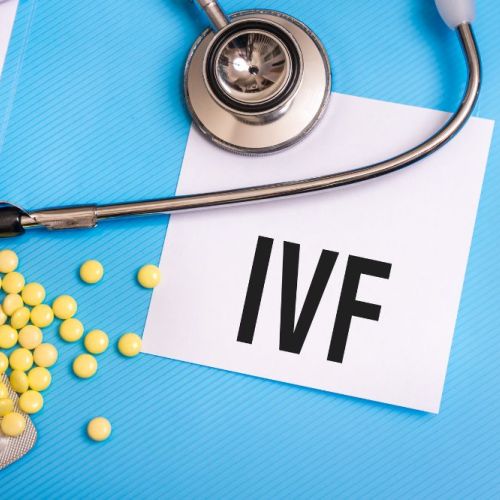How to Maintain Good Reproductive Health

Many women give little thought about how to maintain good reproductive health, but it’s important to be proactive about taking care of this complex system. Many couples encounter challenges when trying to conceive, and may not realize that unhealthy lifestyle choices can have a negative effect on reproductive health.
The experts at the California Center for Reproductive Health help people learn about what they can do to be proactive about their reproductive health. What do you need to do to take care of your body, including your reproductive system?
Prevent or Treat STDs
Preventive care is an important part of taking care of your reproductive health. Having a regular gynecological examination is the best way to be sure routine screenings are done to ensure early detection of infections and illnesses.
Untreated sexually transmitted diseases can cause permanent damage to your fallopian tubes and uterus. Since STDs like gonorrhea and chlamydia may not cause symptoms and are a leading cause of infertility, taking care of your reproductive health means doing whatever you can to prevent contracting them.
Condoms reduce the risk of contracting an infection but don’t offer total protection, so sexual activity should be limited to a committed relationship with a partner who isn’t infected. If you do contract an STD, treatment should be started immediately.
Healthy Lifestyle Choices
Lifestyle choices have a big impact on your overall health, including your reproductive health. One of the first places to look is at the foods you’re consuming. Be sure to include healthy, nutritious foods such as fruits, vegetables, and whole grains along with protein from lean meats or plant-based protein sources such as quinoa, tofu, or lentils. Limit caffeine and processed foods.
Work on being at a healthy weight since being either underweight or overweight can affect ovulation. It’s important to include physical activity in your life. Exercise can increase your strength and relieve stress, but don’t overdo it since over-exercising may inhibit ovulation.
Smoking is one of the most harmful things you can do to your body. Don’t smoke and if you’re a smoker, make it a priority to quit. Limit your consumption of alcohol or other substances and avoid exposure to toxins. Sleep can have a big impact on your overall health, so also try to get on a regular sleep schedule.
Know your own body and pay attention to signals your body may give you that something isn’t quite right. Talk to your doctor about signs that concern you such as fatigue, loss of appetite, or changes in your menstrual cycle
Reproductive Health and Infertility
Your reproductive health is important, whether you’re trying to get pregnant now or sometime in the future. When you do decide to get pregnant, you may find that getting pregnant isn’t always easy. Infertility is a very common problem, and there are many reasons couples struggle with being unable to conceive. While there are some factors that are beyond your control, there are some things you can do to make sure your reproductive system is as healthy as possible. Contact our office to work with our experts on developing and maintaining good reproductive health today.
Eliran Mor, MD
Reproductive Endocrinologist located in Encino, Santa Monica, Valencia & West Hollywood, CA
FAQ
Reproductive endocrinology and Infertility is a sub-specialty of Obstetrics and Gynecology. In addition to managing medical and surgical treatment of disorders of the female reproductive tract, reproductive endocrinologist and infertility (REI) specialists undergo additional years of training to provide fertility treatments using assisted reproductive technology (ART) such as in vitro fertilization.
Reproductive endocrinologists receive board certification by the American Board of Obstetrics and Gynecology in both Obstetrics and Gynecology and Reproductive Endocrinology and Infertility.
In general, patients should consider consulting with an REI specialist after one year of trying unsuccessfully to achieve pregnancy. The chance of conceiving every month is around 20%, therefore after a full year of trying approximately 15% of couples will still not have achieved a pregnancy.
However, if a woman is over the age of 35 it would be reasonable to see a fertility specialist earlier, typically after 6 months of trying.
Other candidates to seek earlier treatment are women who have irregular menses, endometriosis, fibroids, polycystic ovary syndrome (PCOS), women who have had 2 or more miscarriages, or problems with the fallopian tubes (prior ectopic pregnancy).
Approximately 1/3 of the time cause for infertility is a female factor, 1/3 of the time a male factor, and the remaining 1/3 a couples’ factor.
At CCRH, we emphasize the importance of establishing a correct diagnosis. Both partners undergo a comprehensive evaluation including a medical history and physical exam.
Furthremore, the woman’s ovarian reserve is assessed with a pelvic ultrasound and a hormonal profile. A hysterosalpingogram (HSG) will confirm fallopian tube patency and the uterine cavity is free of intracavitary lesions. A semen analysis is also obtained to evaluate for concentration, motility, and morphology of the sperm.
Additional work up is then individualized to direct the best possible treatment option for each couple.
In vitro fertilization (IVF) is the process that involves fertilization of an egg outside of a woman’s body.
The process starts with fertility drugs prescribed to help stimulate egg development. In your natural cycle, your body is only able to grow one dominant egg, but with stimulation medication we can recruit multiple eggs to continue to grow. After about 8-10 days of stimulation, the eggs are surgically retrieved and then fertilized with sperm in a specialized laboratory. Fertilized eggs are then cultured under a strictly controlled environment within specialized incubators in the IVF laboratory for 3-5 days while they develop as embryos. Finally, embryos (or an embryo) are transferred into the uterine cavity for implantation.
Before deciding if IVF is the right choice, it’s important to sit down with an REI specialist to discuss available treatment options. For some people, other methods such as fertility drugs, intrauterine insemination (IUI) may be the best first choice treatment. At CCRH, we believe each individual couple is unique and not everyone needs IVF.
While not painful, the fertility medications may some side effects including headaches, hot flashes, mood swings, and bloating. The injection sites may also bruise.
Unfortunately, no. Many people think once they start IVF it’s a matter of time that they will be pregnant and have a baby. But according to national statistics per the Society of Assisted Reproduction (SART), on average 40% of assisted reproduction cycles achieve live births in women under age 35. The chances of success then continue to decrease with advancing age.
At CCRH, we employ only evidence-based interventions to ensure patient safety and optimal outcome. While we cannot guarantee a baby, we guarantee that you will receive the best, most advanced, personalized care to help you maximize your chance of a baby.
The average IVF success rate (success measured in live birth rate) using one’s own eggs begins to drop around age 35 and then rapidly after age 40. This is due to the decline in egg quantity and egg quality as a woman ages.
Our clinic’s success rate consistently beats the national average year after year.
Individual insurance plans often do not have any coverage for infertility treatments. If you have a group plan, you can call members services to see if they have coverage for infertility (including consultation/workup and IVF).
After your consultation with our REI specialist, one of our dedicated account managers with sit with you to go over the cost of treatment.




